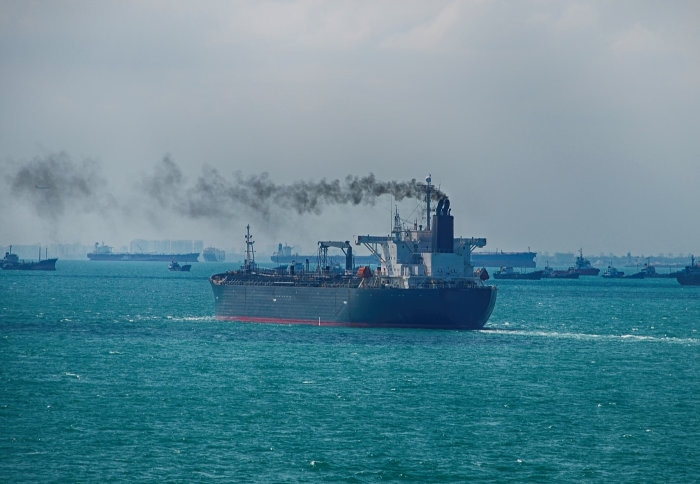Jan 29 2019
A recent white paper from Imperial College London expresses that combining natural gas fuel with other approaches could help shipping and road freight sectors meet targets.
 (Image credit: Imperial College London)
(Image credit: Imperial College London)
By 2050, the International Maritime Organization (IMO)—the United Nations’ organization for shipping—aims to reduce at least half of the greenhouse gas emissions from ships compared to 2008 levels. The road freight sector, which includes cargo transport via trucks, is projected to work toward similar carbon reduction goals.
Long-distance trucks and ships presently use diesel and heavy fuel oil, which produce greenhouse gases such as carbon dioxide (CO2) that adds to global warming. They also produce air pollutants like sulfur oxides (SOx), nitrogen oxides (NOx), and particulates, which contribute to air pollution and are detrimental to human health.
In 2015, for instance, road freight—which takes into account long-haul trucks as well—contributed 7% of global CO2 emissions, and ships contributed up to 2.5%. However, eliminating or reducing carbon emissions from long-haul ships and vehicles has been hard to fulfill, with advanced battery electric or hydrogen fuel cell systems more costly and potentially narrow in the range they can offer.
This new white paper, authored by academics at Imperial’s Sustainable Gas Institute, investigates the probable advantages of using natural gas for ship and truck fuel. It examines how the change could impact air pollution, greenhouse gas emissions, and cost to industry.
The paper was co-authored with academics at Imperial’s Centre for Transport Studies, and the University of British Columbia’s Clean Energy Research Centre.
Switching solutions
The use of natural gas to fuel ships and vehicles discharges less carbon compared to diesel. However, the report discovered that certain natural gases, such as methane, leak as they flow via the supply chain, which considerably diminishes the benefit of substituting fuel.
The report also raises a question on the value of using natural gas in trucks. In the last few years, rules for trucks have optimized their energy efficiency to an extent that swapping to natural gas for fuel might not diminish the relative advantage of a switch to natural gas.
Therefore, to make substituting beneficial, natural gas should be integrated with energy efficiency processes that will considerably enhance greenhouse gas emissions, according to the report.
They observe that electrifying vehicles is an alternate option, but that this might not profit long-haul trucks as batteries are presently heavy, expensive, and occupy considerable space on a vehicle. The time needed for charging also confines the vehicle’s time on the road hauling cargo.
The authors say swapping to natural gas as a transport fuel could offer cost-effective emissions advantage and the technology is accessible, but it will not be sufficient to realize long-term low-carbon goals.
The greenhouse gas benefits of natural gas as a transport fuel are useful in the short term, but must be coupled with additional energy efficiency measures and longer term plans that include much lower carbon truck and ship technologies.
Dr Jamie Speirs, Study Lead Author, Department of Earth Science & Engineering, Imperial College London.
Energy efficiency measures
Trucks and ships that use natural gas are costly to manufacture, but the researchers say the money saved in fuel is expected to compensate the preliminary cost over their lifetime as natural gas is, at present, economical than diesel.
Shipping manufacturers can also reduce the amount of energy, and cost, used by fitting solar panels to supplement energy requirements and using sails to harness wind power. Another technique is to apply barnacle-repellent paint to stop accumulation on the hull and maintain the ship streamlined.
Likewise, road freight industries could enhance efficiency, using a variety of options including more energy-efficient tires to lower resistance and better aerodynamics.
The study authors say that a combination of options will be required to match the goals principally set out by the IMO. The selected options must permit for repetitively improving greenhouse gas emissions to 2050 to fight the emissions of the current fleet and the anticipated increases in demand for ships and trucks.
To get the full picture on greenhouse gas emissions we looked at the whole lifecycle and the fuel supply chain as well as tailpipe emissions. Our review shows that small amounts of methane leakage across the supply chain of natural gas can eliminate the benefit of substituting diesel for natural gas. We also found that natural gas engines tend not to be as energy efficient as diesel engines and that this also reduces the carbon benefits of trucks. To achieve fewer emissions, we need a mix of technologies including electric vehicles for short urban routes, electrification of long-haul operations and more efficient logistics processes.
Dr Marc Stettler, Study Co-Author, Department of Civil and Environmental Engineering, Imperial College London.
On January 28th, 2019, the report was publicized at the Sustainable Gas Institute, Imperial College London.